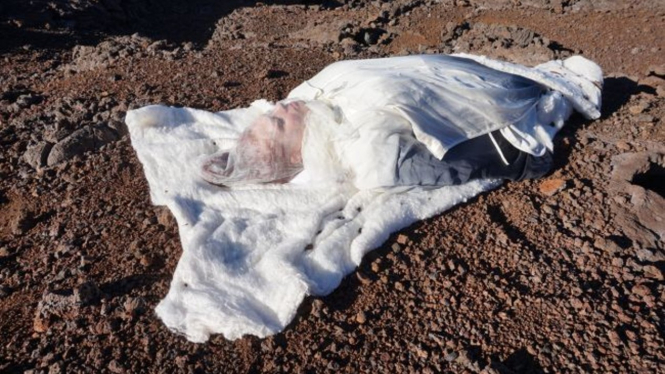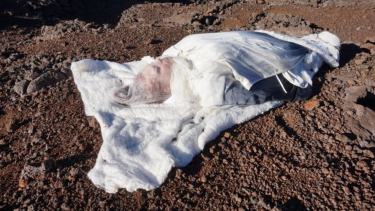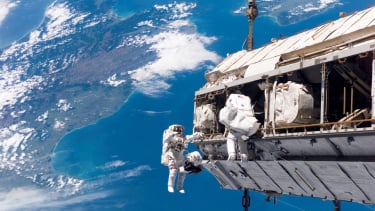- Space.com
Jakarta – Sending humans into space is extremely difficult and dangerous. Since human space exploration began more than 60 years ago, 20 people have died.
This includes 14 people in the 1986 and 2003 NASA space shuttle tragedies, three cosmonauts in the 1971 Soyuz 11 mission, and three astronauts in the 1967 Apollo 1 launch pad fire.
The National Aeronautics and Space Administration (NASA) plans to send a crew to the Moon by 2025 and astronauts to Mars within the next decade.
Commercial spaceflight is becoming routine. As space travel becomes more common, the likelihood of someone dying on the journey also increases.
It brings to mind a gloomy but necessary question to ask: if someone dies in space, what happens to their body?
According to Emmanuel Urquieta, a space medical doctor, if someone dies on a low-Earth orbit mission – such as on the International Space Station (ISS) – the crew can return the body to Earth within hours.
Astronot bekerja di luar Stasiun Luar Angkasa Internasional (ISS).
- SpaceNews
But if it happens on the Moon, the crew could return to Earth with the body in just a few days. NASA already has detailed protocols for such events.
Due to the quick return, the possibility of preserving the remains will not be NASA's main concern. Instead, the top priority is to ensure the remaining crew returns to Earth safely. The situation would be different if an astronaut died on the 300 million-mile journey to Mars.
In that scenario, the crew might not be able to return. Instead, the remains would likely return to Earth with the crew at the end of the mission, several years later.
In the meantime, the crew would probably store the remains in a separate chamber or special body bag. The stable temperature and humidity inside the space vehicle should theoretically help preserve the remains.
However, all of these scenarios only apply if someone dies in a pressurized environment, such as a space station or spacecraft.
Astronauts would die instantly if they left without the protection of a spacesuit. The loss of pressure and exposure to the vacuum of space will leave astronauts unable to breathe. Blood and other body fluids will boil.
What would happen if an astronaut went to the Moon or Mars without a spacesuit? The Moon has almost no atmosphere, while Mars has a very thin atmosphere and almost no oxygen. So the result is almost the same as exposure in open space, namely suffocation and boiling blood.
Suppose an astronaut dies after landing while on the surface of Mars. Cremation is undesirable because it takes too much of the surviving crew's energy for other purposes. Burial is also not a good idea. Bacteria and other organisms from the body could contaminate the surface of Mars.
Instead, the crew will likely store the remains in special body bags until they can be returned to Earth.
Many still unknown about how the rovers will deal with death. It's not just about what to do with the remains.
Helping the crew cope with the loss, and assisting grieving families to return to Earth, is just as important as dealing with the bodies of the deceased.
However, to truly colonize another world – be it the Moon, Mars, or a planet beyond our solar system – these bad scenarios require careful planning and protocols.


























